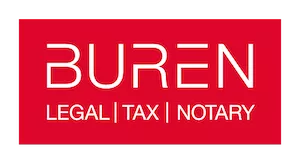- within Privacy and International Law topic(s)
- with readers working within the Utilities industries
Recently, Jan Greijdanus and Esfandiar Rezaei wrote a commentary on the judgment of the East Brabant District Court dated February 14, 2024, regarding director's liability. In this judgment, a director, a former director, and a third party (acting as a de facto director) of a foundation were held severally liable.
From the Court's considerations, wise lessons can be drawn for current and future directors:
- Check previous changes in the board of directors
When considering a board position, it may be wise to check how many directors have held the position and for how long. The directors of the foundation could have sensed trouble by consulting this information at the Chamber of Commerce. Within a period of approximately one year, three directors had signed up and subsequently resigned.
- Check the (presence of a) director's liability insurance
The director's liability insurance did not provide coverage in this case.
- Verify whether the bookkeeping obligations are being met and whether the (payment) obligations of the legal entity are adequately documented.
The fulfilment of the bookkeeping obligation – to which every legal entity must adhere – depends, among other things, on the number and size of activities. In any case, the bookkeeping obligation goes beyond the occasional preparation of a balance sheet and the recording of invoices. It is also required that any payment obligations are documented in written agreements, such as service and/or management agreements.
The books and records should enable the board to make the right decisions, but also to guide a successor board member. The foundation in question had a healthy financial situation when the former director departed. However, he was still held severally liable because he had laid the groundwork for a risky manner of governance without written agreements.
- Do not forget your own (legal) responsibility
A director always has their own (legal) responsibility, even when pressured by a third party. In some cases, resigning may be advisable. In this case at hand, the director had allowed interference from a de facto director. The court judged that this did not constitute grounds to moderate or waive liability.
- The objects of the relevant legal entity are not decisive
Even a director of a foundation solely pursuing societal goals may, under certain circumstances, be held jointly liable.
Furthermore, the judgment confirms that a third party can be held liable as a de facto director. De facto directorship arises when at least a part of the management authority is assumed and thereby policy is determined or co-determined, as if they were a director. In the judgement we discussed, a third party takes centre stage (due to significant involvement in the policy matters of the foundation) without holding a formal position. He did not evade its liability.
Details of the judgement and are commentary are: Rb. Oost-Brabant 14-02-2024, ECLI:NL:RBOBR:2024:598, RO 2024/35.
The content of this article is intended to provide a general guide to the subject matter. Specialist advice should be sought about your specific circumstances.
[View Source]


